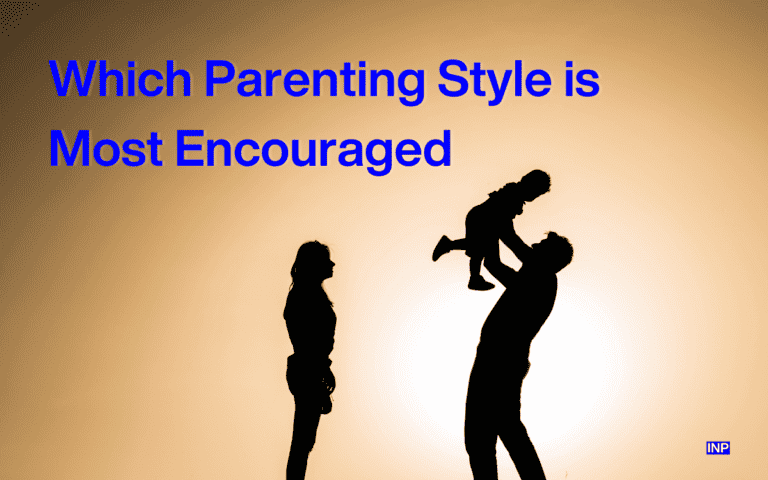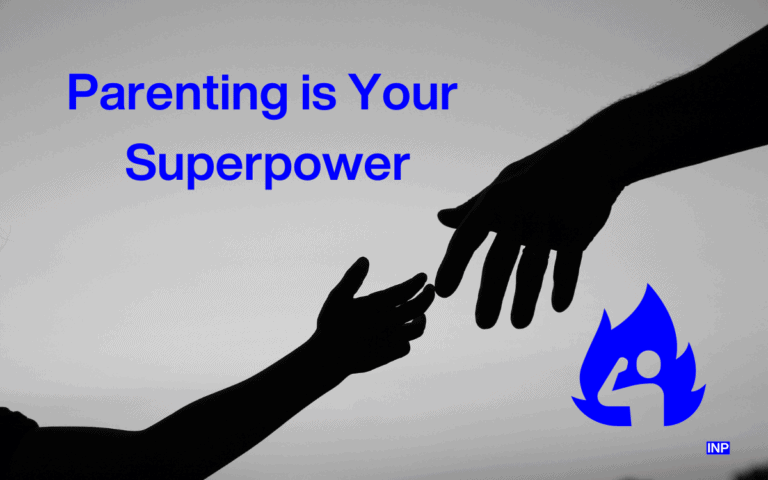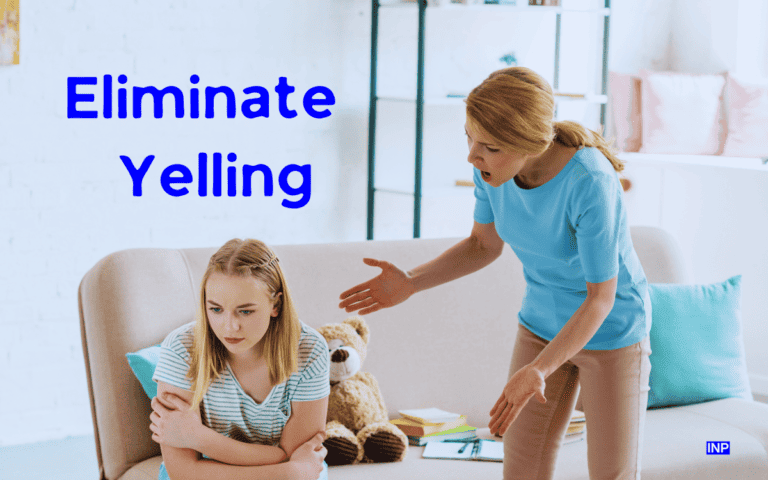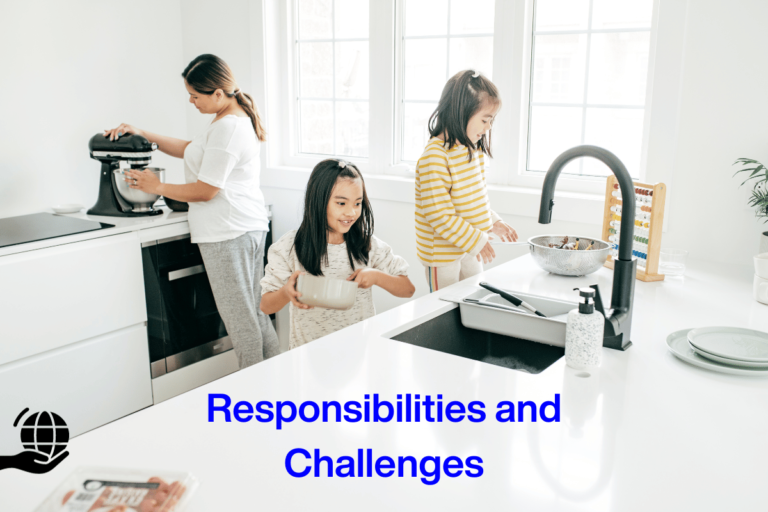Uninvolved Parenting: Exploring Its Negative Effects
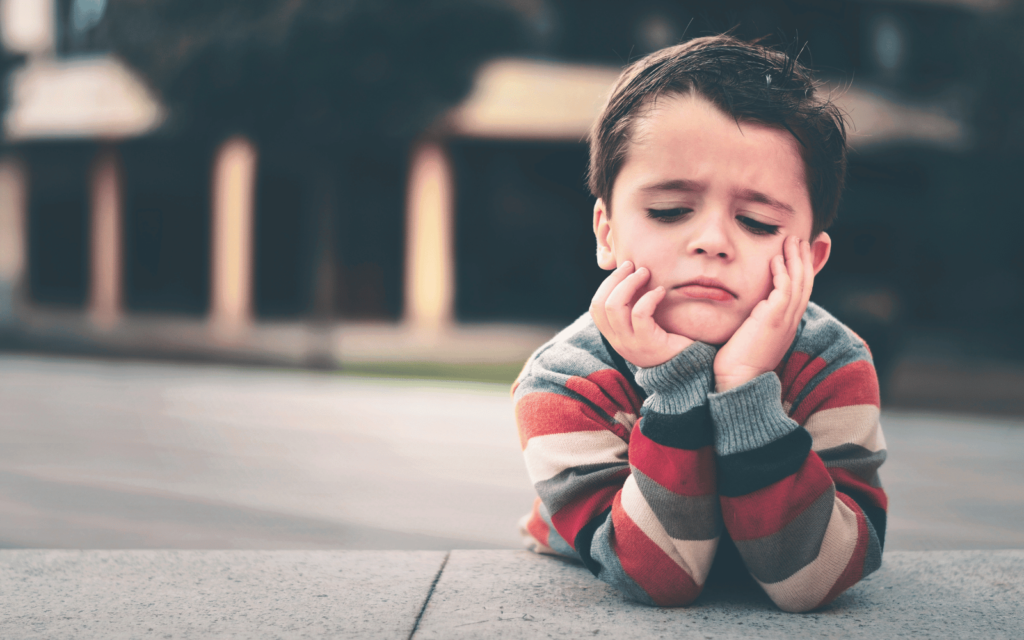
Are you familiar with the concept of uninvolved parenting? It refers to a parenting style where parents show little interest or involvement in their children’s lives. While the term may sound innocuous, its negative effects on children’s development are far from benign.
In this discussion, we will explore the detrimental consequences of uninvolved parenting and delve into the reasons behind this parenting style. But that’s not all – we will also explore how society and individuals can break the cycle and overcome the long-lasting effects.
Are you ready? Let’s explore further.
Key Takeaways
- Uninvolved parenting can have significant negative effects on children’s development, including feelings of neglect, low self-esteem, and difficulties forming healthy relationships.
- Children raised by uninvolved parents are at a higher risk for behavioral problems, academic difficulties, and substance abuse.
- Uninvolved parenting is characterized by minimal emotional support, limited communication, and lack of supervision.
- Seeking professional help, improving parenting skills, prioritizing parent-child relationships, and engaging actively are key steps in breaking the cycle of uninvolved parenting.
What is Uninvolved Parenting?
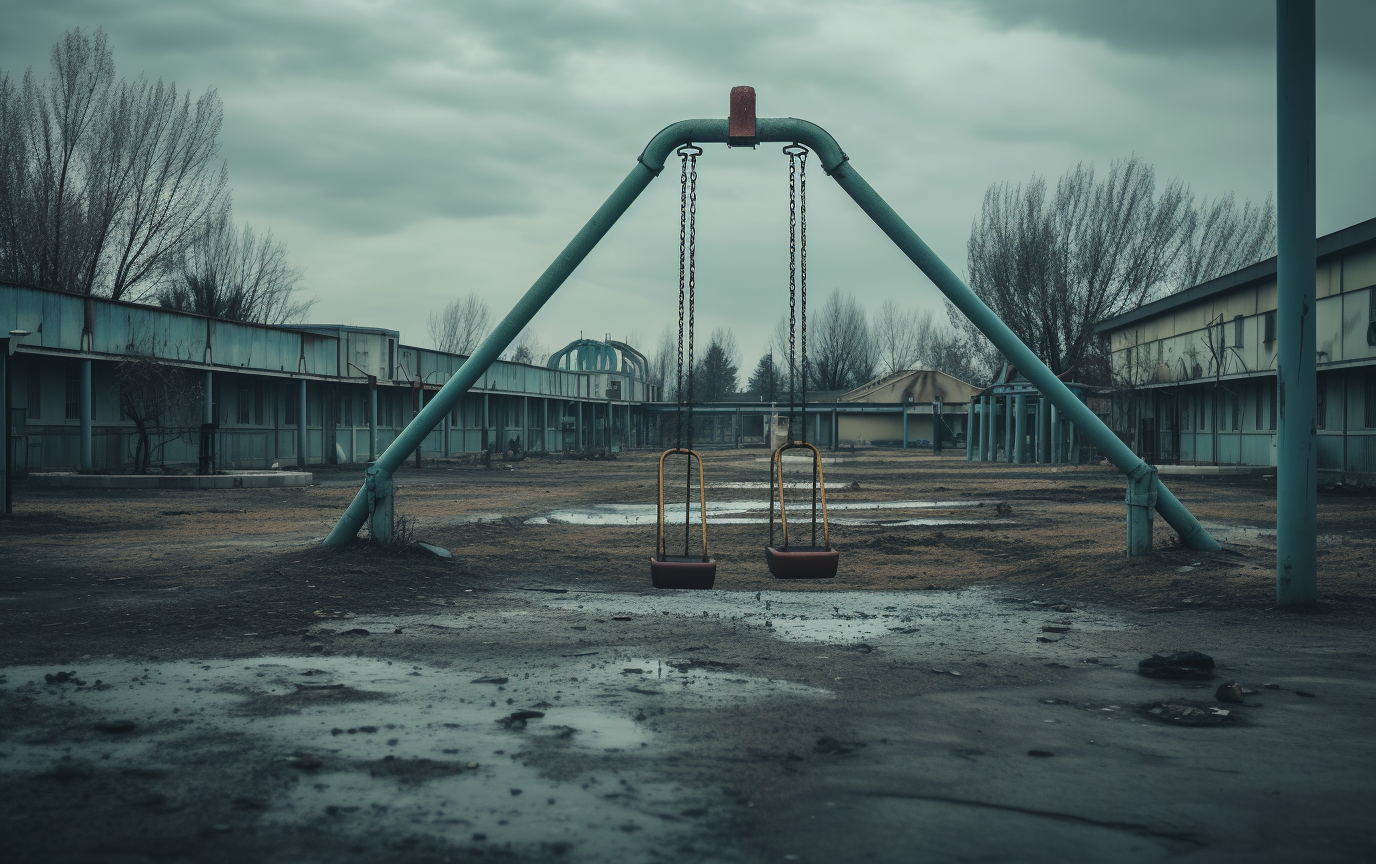
Uninvolved parenting is a style where parents show little interest or involvement in their child’s life and development. This neglectful parenting style can harm children’s overall well-being and development.
The effects of uninvolved parenting can be far-reaching and long-lasting. Children raised by uninvolved parents often experience feelings of neglect, abandonment, and low self-esteem.
They may struggle with forming healthy relationships and have difficulty regulating their emotions. These children are also at a higher risk for behavioral problems, academic difficulties, and substance abuse.
To help counter such academic setbacks, incorporating structured activities like Learning Worksheets Boost Cognitive Development can provide the mental stimulation and support children need to thrive.
Characteristics of uninvolved parenting include minimal emotional support, limited communication, and lack of supervision. Uninvolved parents may be physically present but emotionally absent, failing to provide children with nurturing and guidance.
They may prioritize their needs and interests over their children’s, leaving them unsupported and neglected.
It is important to note that uninvolved parenting differs from hands-off or free-range parenting, where parents give children the freedom to explore and make their own decisions. Uninvolved parenting is characterized by a lack of emotional connection and involvement in the child’s life.
Characteristics of Uninvolved Parents

Uninvolved parents often display minimal emotional support and limited communication with their children. This parenting style can have detrimental effects on children’s lives. Neglectful parents prioritize their needs and interests over their children’s well-being and development.
They may be physically present but emotionally absent, failing to provide the necessary love, guidance, and attention that children require.
One characteristic of uninvolved parents is a lack of responsiveness. They may not respond to their children’s emotional or physical needs, leaving them feeling ignored and unimportant.
This can lead to insecurity and a diminished sense of self-worth in children. Additionally, uninvolved parents often fail to establish and enforce consistent rules and boundaries. This lack of structure can leave children feeling unguided and unsure how to navigate the world around them.
Another characteristic is limited communication. Uninvolved parents may not engage in meaningful conversations or take an interest in their children’s interests or activities.
This can lead to a lack of emotional connection and hinder the development of important social and communication skills in children. Children may struggle to express their thoughts, emotions, and needs without proper communication.
Impacts on Children’s Development
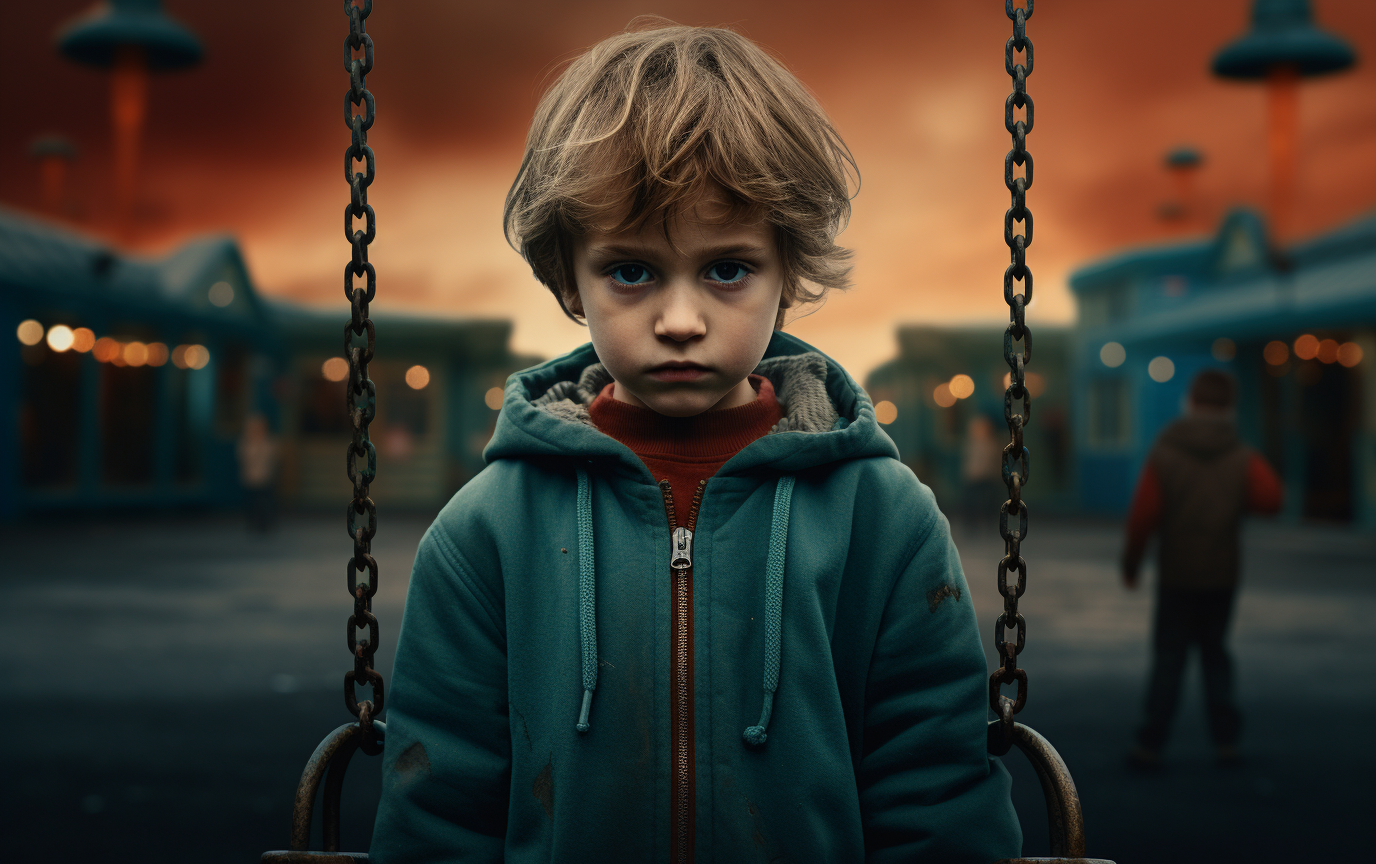
When parents are uninvolved, it can negatively impact their children’s development at different stages of their lives.
Infants and toddlers may struggle with emotional bonding and attachment, leading to later difficulties in forming relationships.
School-aged children may experience academic and behavioral problems due to the lack of parental guidance and support.
Teenagers may be more prone to risky behaviors and facing social and emotional development challenges.
Infants and Toddlers
The negative effects of uninvolved parenting can significantly impact the development of your infant or toddler. Emotional detachment, caused by a lack of emotional support and responsiveness from you as parents, can hinder their ability to form secure attachments and regulate their emotions.
Additionally, the lack of stimulation and interaction can impede their cognitive and social development, potentially leading to delays in reaching developmental milestones.
Emotional Detachment
Emotional detachment in infants and toddlers, resulting from uninvolved parenting, can harm their overall development. When parents adopt a neglectful parenting style, it can lead to a lack of emotional connection between the child and the caregiver.
This emotional detachment can negatively impact children’s emotional and mental health. Infants and toddlers need responsive and nurturing caregivers to develop secure attachments, regulate their emotions, and build healthy relationships with others.
Lack of Stimulation
A lack of stimulation can hinder the development of infants and toddlers, impacting their overall growth and learning. When uninvolved parents fail to provide appropriate stimulation, neglected children may experience delays in cognitive, social, and emotional development.
Infants and toddlers miss crucial opportunities to explore, learn, and develop essential skills without engaging in activities and interactions. This lack of stimulation can affect a child’s well-being in the long term and hinder their overall development.
School-Aged Children
As a school-aged child with uninvolved parents, you may experience poor academic performance and behavioral issues.
Without the support and guidance of involved parents, you may struggle to stay motivated in school and may not receive the necessary help with homework or studying.
Additionally, the lack of parental involvement can lead to behavioral problems, as you may not have the structure and boundaries necessary for proper social and emotional development.
Poor Academic Performance
Uninvolved parenting can significantly hinder your academic performance during your school-aged years. Neglectful or uninvolved parenting, characterized by a lack of emotional support, guidance, and involvement in your education, can lead to poor academic performance.
Child neglect, in the form of uninvolved parenting, has negative consequences on your development, impacting your ability to succeed academically. You may struggle to meet educational milestones and reach your full potential without parental support and engagement.
Behavioral Issues
The lack of emotional support and guidance from uninvolved parents can have a detrimental impact on children’s development, leading to behavioral issues during their school-aged years.
Children raised by uninvolved parents often exhibit challenging behaviors such as aggression, defiance, and impulsivity. These children may struggle to regulate their emotions and behaviors without emotional support.
The absence of consistent guidance and discipline can contribute to a lack of self-control and an increased risk of engaging in risky or problematic behaviors.
Teenagers
As a teenager with uninvolved parents, you may be more prone to risky behaviors. Without the guidance and support of involved parents, you may need to seek excitement and validation elsewhere, leading to potential negative consequences.
Additionally, uninvolved parenting can increase the likelihood of experiencing mental health issues, such as depression and anxiety, as you navigate the challenges of adolescence without a consistent support system.
Increased Risk-Taking
Teenagers who experience uninvolved parenting are more likely to engage in increased risk-taking behaviors that can negatively impact their development.
When parents are neglectful and fail to provide guidance and support, teenagers may seek validation and excitement elsewhere. This can lead to involvement in dangerous activities such as substance abuse, reckless driving, or unsafe sexual behavior.
The lack of parental involvement leaves teenagers feeling disconnected and more prone to making impulsive decisions without considering the consequences.
Higher Rates of Mental Health Issues
After experiencing increased risk-taking behaviors due to uninvolved parenting, teenagers may also face higher rates of mental health issues that can significantly impact their development.
The negative effects of uninvolved parenting on children’s behavior and child psychology are evident in the increased vulnerability to mental health issues among teenagers.
Research shows that adolescents with uninvolved parents are more likely to experience depression, anxiety, and substance abuse problems, leading to long-term consequences for their overall well-being and life outcomes.
Causes of Uninvolved Parenting

As a parent, you may encounter uninvolved parenting stemming from various causes, including perpetuating a cycle of neglect from one generation to the next. If you have experienced uninvolved or neglectful parenting, you might be more prone to repeating such behavior with your children.
Moreover, a self-centered mindset can lead to uninvolved parenting, where your needs and desires might precede your children’s needs.
Continuing the Cycle
To understand the causes of uninvolved parenting, examining the upbringing and childhood experiences of the individuals involved is essential.
One significant factor contributing to the continuation of uninvolved parenting is the cycle of negative effects. Children who grow up in households with uninvolved parents often experience neglectful parenting and even instances of child abuse.
These negative experiences can profoundly impact their development and understanding of what it means to be a parent.
As they grow older, these individuals may struggle to form healthy attachments and relationships with their children, perpetuating the cycle of uninvolved parenting.
Additionally, the lack of positive role models and guidance during their upbringing may result in a limited understanding of effective parenting strategies, further fueling the continuation of uninvolved parenting patterns.
Self-Centeredness
Self-centeredness is a key factor that contributes to the development of uninvolved parenting. When self-centered parents prioritize their needs and desires over their children’s, this often stems from low self-esteem, as they may lack the emotional skills to engage with their children effectively.
Children of uninvolved parents may suffer from neglectful parenting, feeling invisible and unimportant in their parents’ lives. This can have severe consequences on their emotional well-being and overall development.
When parents are self-centered, they may not be emotionally available for their children, failing to provide the love, support, and guidance they need.
As a result, these children may struggle with forming healthy relationships, developing empathy, and regulating their emotions. It’s crucial to address self-centeredness in parenting to prevent the negative effects of uninvolved parenting on children.
Lack of Awareness
One common cause of uninvolved parenting is a lack of awareness about the needs and responsibilities of being a parent.
When parents aren’t fully aware of the negative effects their uninvolved parenting can have on their children’s development, they may unknowingly engage in neglectful parenting practices.
This lack of awareness can manifest in various ways, such as not recognizing the importance of spending quality time with their children, not understanding how their actions or lack thereof can impact their children’s emotional and cognitive development, and not being knowledgeable about effective parenting strategies.
Without this awareness, parents may fail to provide the necessary support, guidance, and nurturing children require for healthy growth and development. Parents must educate themselves and seek resources to help them become more aware and involved in their children’s lives.
Breaking the Cycle

To break the cycle of uninvolved parenting, you should consider seeking professional help. A qualified therapist can guide you in understanding the root causes of your uninvolved behavior and provide strategies for improving your parenting skills.
Additionally, it’s crucial to improve your parent-child relationships by actively engaging with your children, showing interest in their lives, and providing emotional support.
Lastly, don’t forget to prioritize self-care, as taking care of your mental and emotional well-being will enable you to be a more present and involved parent.
Seeking Professional Help
If you’re struggling with uninvolved parenting and want to break the cycle, seeking professional help can be crucial. Therapy can provide a safe space to explore your parenting style, address any underlying issues, and learn healthier ways to engage with your child.
Parenting classes can also offer valuable guidance and support, equipping you with the necessary skills and knowledge to become a more involved and nurturing parent.
Therapy
Seeking professional help through therapy is crucial for breaking the cycle of uninvolved parenting and addressing the negative effects it has on both parents and children.
Therapy provides a safe space for parents to explore their mental health problems and the underlying causes of their neglectful parenting. Through therapy, parents can gain insight into their behavior, develop healthier coping mechanisms, and learn effective parenting skills.
It also allows children to receive the support they need to heal from the emotional wounds caused by uninvolved parenting.
Parenting Classes
Breaking the cycle of uninvolved parenting and seeking professional help can involve enrolling in parenting classes to learn effective strategies for nurturing and engaging with your child.
Parenting classes can provide valuable insights into the negative effects of uninvolved parenting on child development. These classes emphasize the importance of parental involvement in fostering a healthy parent-child relationship.
Improving Parent-Child Relationships
To improve your parent-child relationship and break the cycle of uninvolved parenting, focus on quality time and open communication.
Please make an effort to spend dedicated, undivided time with your child, engaging in activities that they enjoy and showing genuine interest in their lives.
Additionally, create an environment of open communication where your child feels comfortable expressing their thoughts and emotions and actively listens and responds with empathy and understanding.
Quality Time
Spending quality time with your child is essential for building a strong and healthy parent-child relationship. When parents practice uninvolved parenting, it can negatively affect the child’s behavior and emotional connection.
Without quality time together, children may feel neglected and develop behavioral issues as a result. You can foster a deeper emotional bond and positively impact their behavior by actively engaging with your child, participating in activities, and showing genuine interest.
Open Communication
Open communication is crucial for building a strong and healthy parent-child relationship. When parents engage in uninvolved parenting, where they’re emotionally distant and fail to provide support and guidance, the negative effects on children’s behavior and development can be significant.
By fostering open communication, parents can create an environment where children feel safe to express their thoughts and emotions. This helps promote positive behavioral outcomes and enhances a child’s overall development and well-being.
Parents must prioritize open communication to break the cycle of uninvolved parenting and nurture a strong parent-child bond.
Making Self-Care a Priority
To break the cycle of uninvolved parenting, it’s crucial to make self-care a priority. Taking breaks and building a support system are essential in maintaining your well-being as a parent.
Taking Breaks
Regular breaks are essential for maintaining a healthy and balanced lifestyle while prioritizing self-care.
Regarding uninvolved parenting, not taking breaks can negatively affect children’s behavior and overall development.
As an uninvolved parent, it’s crucial to recognize the importance of taking time for yourself.
Building a Support System
By prioritizing self-care and building a support system, you can break the cycle of uninvolved parenting and create a healthier environment for yourself and your child.
Uninvolved parenting can negatively affect children’s basic needs and overall development. Busy parents often struggle to find time for themselves.
Still, by reaching out to friends, family, or support groups, you can establish a network that provides emotional support, practical assistance, and a sense of community.
This support system can help alleviate stress and allow you to be more present and engaged in your child’s life.
Role of Society

Now, let’s talk about the role of society in addressing the negative effects of uninvolved parenting.
Government programs are crucial in providing support and resources to families in need, while schools can offer guidance and education to parents and children.
Additionally, community organizations are vital in creating a support network and opportunities for parents to engage with their children and foster a sense of community.
Government Programs
Government programs play a crucial role in addressing the negative effects of uninvolved parenting. Child Protective Services ensures the safety and well-being of children by investigating cases of neglect or abuse.
Additionally, parenting resources provided by the government offer support, guidance, and education to parents who may be struggling or lacking the necessary skills to care for their children effectively.
Child Protective Services
Child Protective Services is crucial in safeguarding children’s well-being and ensuring their safety within society. When it comes to the negative effects of uninvolved parenting, child protective services are often called upon.
Neglectful parenting or abusive parents can have devastating consequences on a child’s development and overall mental health. This is where child protective services step in, providing intervention and support to ensure the child’s safety and well-being are prioritized.
Parenting Resources
When addressing the negative effects of uninvolved parenting, it’s essential to recognize the vital role that government programs play in providing parenting resources and support within society.
These programs offer valuable resources to help parents improve their skills, which can positively impact their children’s behavior and overall development.
Schools
Now, let’s talk about the role of schools in addressing the negative effects of uninvolved parenting.
One important point is the need for school counseling services, which can support and guide students struggling due to lack of parental involvement.
Additionally, schools should actively engage in outreach to parents, offering resources and workshops to help them become more involved in their children’s education.
These efforts can help mitigate the detrimental impact of uninvolved parenting on students’ academic and emotional well-being.
Counseling
Schools are crucial in providing counseling services to address the negative effects of uninvolved parenting. When children experience the negative effects of uninvolved parenting, such as behavioral issues or emotional distress, counseling can be beneficial.
Outreach to Parents
Schools can actively engage in outreach to parents to address the negative effects of uninvolved parenting.
By reaching out to parents, schools can provide them with resources and support to improve their involvement in their child’s development. This can have a positive impact on children’s behavior and academic performance.
Schools can bridge the gap between parents and educators through workshops, parent-teacher conferences, and communication channels, creating a collaborative environment that benefits the child’s overall well-being.
Community Organizations
Community organizations are crucial in filling the gaps left by uninvolved parenting.
Parent support groups allow parents to connect, share experiences, and gain valuable advice and support.
Mentoring programs also offer guidance and positive role models for children who may lack the parental involvement they need.
These organizations contribute to creating a supportive community that can help mitigate the negative effects of uninvolved parenting.
Parent Support Groups
Joining a parent support group can significantly enhance your parenting skills and provide a strong network of individuals with similar experiences and challenges. These groups can help counteract the negative effects of uninvolved parenting on children’s behavior and development.
By connecting with other parents who understand your struggles, you can gain valuable insights, learn effective strategies, and receive emotional support.
Being part of a parent support group can be a game-changer for you and your child.
Mentoring Programs
Participating in mentoring programs offered by community organizations can profoundly impact parents and children, fostering positive relationships and providing valuable guidance and support.
These programs can help counter the negative effects of uninvolved parenting by offering a supportive and nurturing environment for children.
Through mentoring, children learn positive behaviors and develop important life skills. Mentors play a crucial role in shaping a child’s development, helping them to navigate challenges and build resilience.
Overcoming the Effects

Therapy for parents and children can be helpful to overcome the negative effects of uninvolved parenting.
Parents can seek therapy to explore and address any underlying issues or challenges that may have contributed to their uninvolved parenting style.
Children can also benefit from therapy to develop coping mechanisms, build self-esteem, and learn healthy ways to navigate relationships and emotions.
Therapy for Parents
To overcome the negative effects of uninvolved parenting, therapy can help you address past trauma and learn new skills.
Therapy provides a safe space for you to explore and process any unresolved issues from your childhood, allowing you to break the cycle of uninvolved parenting.
You can also acquire effective parenting techniques and develop healthier relationship patterns with your children through therapy.
Addressing Past Trauma
Therapy for parents is crucial in addressing past trauma and overcoming its effects on uninvolved parenting.
When parents have experienced trauma, it can negatively impact their ability to engage with their children, leading to uninvolved parenting. This can have detrimental effects on children’s behavior and development.
Through therapy, parents can work through their past trauma, learn coping strategies, and improve their emotional well-being. This, in turn, enables them to become more involved parents, positively impacting their children’s lives.
Learning New Skills
After addressing past trauma, you can begin learning new skills through therapy to overcome the negative effects of uninvolved parenting.
Learning these skills is crucial in improving your children’s behavior and fostering healthy development.
You can acquire effective communication techniques through therapy, set boundaries, provide appropriate discipline, and develop nurturing and responsive parenting strategies.
These new skills will help you create a supportive and loving environment for your children, enhancing their overall well-being.
Therapy for Children
Now it’s time to focus on therapy for children who’ve experienced the negative effects of uninvolved parenting.
Therapy can help these children build their self-esteem and teach them coping mechanisms.
Building Self-Esteem
To build self-esteem and overcome the negative effects of uninvolved parenting, children can benefit from engaging in therapeutic interventions designed to empower and support their emotional growth. These interventions can help address the impact of uninvolved parenting on children’s behavior and development.
Developing Coping Mechanisms
To address the impact of uninvolved parenting and empower children to overcome its negative effects, they can develop coping mechanisms through therapeutic interventions that support their emotional growth.
Developing coping mechanisms is crucial for children’s behavior and overall development because it helps them navigate challenges, regulate emotions, and build resilience.
Through therapy, children can learn healthy coping strategies such as deep breathing, problem-solving, and seeking support from trusted individuals.
These coping mechanisms enable children to handle stress, develop positive relationships, and thrive despite the effects of uninvolved parenting.
Summary
In conclusion, uninvolved parenting has detrimental effects on children’s development. The lack of emotional support, guidance, and neglect can lead to various issues, such as low self-esteem, poor academic performance, and difficulty forming healthy relationships.
Society must recognize and address the causes of uninvolved parenting, break the cycle, and provide support and resources for parents to overcome these negative effects.
Doing so can promote healthier and more nurturing environments for our children’s growth and well-being.
Frequently Asked Questions
How Does Uninvolved Parenting Compare to Other Parenting Styles?
Compared to other parenting styles, uninvolved parenting neglects emotional and physical involvement. It can lead to negative effects on a child’s development, including lower self-esteem, poor social skills, and increased risk of delinquency and substance abuse.
Are There Any Positive Effects of Uninvolved Parenting on Children’s Development?
There are few positive effects of uninvolved parenting on children’s development. Without parental involvement, children may struggle with emotional and social development, leading to long-term negative consequences.
What Are Some Common Signs That a Parent May Be Practicing Uninvolved Parenting?
Some common signs that you may be practicing uninvolved parenting include neglecting your child’s emotional needs, not being involved in their activities or education, and failing to provide consistent and appropriate discipline.
How Does Uninvolved Parenting Affect Children’s Social Skills and Relationships?
Uninvolved parenting can negatively affect your child’s social skills and relationships. They may struggle with forming and maintaining friendships, have difficulty with communication and emotional regulation, and experience a lack of trust and connection with others.
What Role Does the Quality of the Parent-Child Relationship Play in Uninvolved Parenting?
The quality of your parent-child relationship is crucial in uninvolved parenting. It greatly impacts how your child develops socially and forms relationships. Neglecting this bond can negatively affect your child’s emotional well-being.

